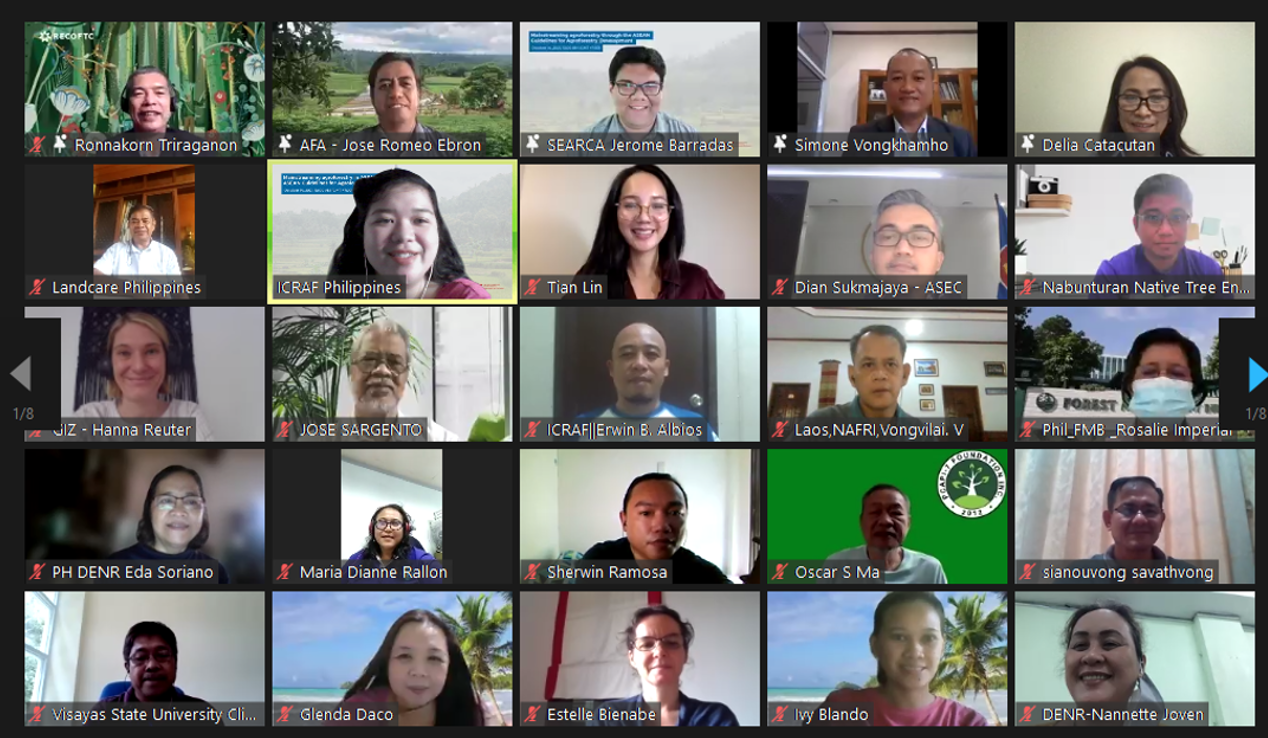
To raise awareness of the Guidelines among different actors in different fields of land use sector in the region, the Center for International Forestry Research and World Agroforestry (CIFOR-ICRAF) co-organized the webinar in co-operation with the GIZ Climate-Smart Land Use (CSLU) in ASEAN project and ASEAN Working Group on Social Forestry and the ASEAN Secretariat. The webinar, Mainstreaming Agroforestry in ASEAN through the ASEAN Guidelines for Agroforestry Development was held virtually on 14 October 2021. It attracted over 200 people, indicating the high public interest in agroforestry development in the region.
The webinar aimed to improve understanding of the Guidelines among ASEAN Member States and non-state actors, promoting knowledge transfer and enhancing networking between different sectors, and identifying best agroforestry practice to inform climate-smart policies, training, projects and partnerships. The participants were provided by an overview of the Guidelines, nesting them within the broader Vision and Strategic Plan for ASEAN Cooperation in Food, Agriculture and Forestry 2016–2025.
The Guidelines feature six main principles, sub-divided into 14 sub-principles and 75 individual guidelines. To promote their adoption, it will require clear direction from governments to land users, national agroforestry programs, and development of monitoring and reporting systems; all through participatory approaches.
During the webinar, the participants discussed best practices, challenges and opportunities in agroforestry development. Representative from Lao PDR shared experience as one of the countries beside Cambodia and Myanmar developing agroforestry roadmaps under the Food and Agriculture Organization of the United Nations (FAO) and ASEAN’s Technical Cooperation Programme on Scaling up Agroforestry for Food Security and Environmental Benefits.
Moreover, the webinar showcased two case studies that emphasise the importance of sociocultural factors in agroforestry design. Despite their different contexts, they both acknowledge the need to secure land tenure, respect cultures, build upon local knowledge and deploy participatory processes.
As a way forward, the ASEAN Secretariat representative mentioned about the need to conduct a cost–benefit analysis of different agroforestry practices and follow up with the Member States to align national policies within the regional framework.
The webinar was supported by the CSLU in ASEAN project, with funding from the German Federal Ministry for Economic Cooperation and Development (BMZ) implemented by the Deutsche Gesellschaft für Internationale Zusammenarbeit (GIZ) GmbH.
Name and contact person:
Ms Hanna Reuter, Principal Advisor Climate Smart Land Use (CSLU) in ASEAN
Email: hanna.reuter@giz.de
Key buzzwords / “tags”
ASEAN, Agroforestry, climatesmartpractice
